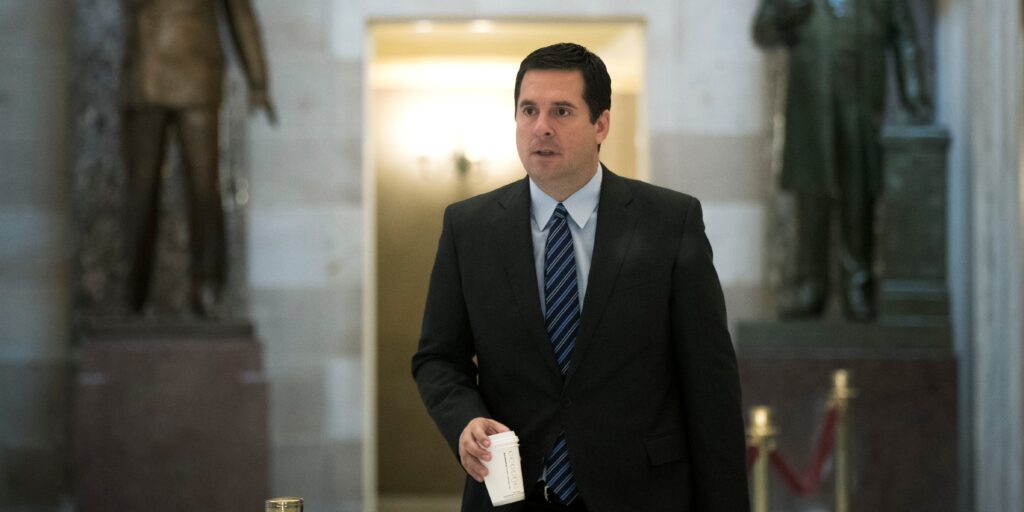- Trump Media CEO Devin Nunes wrote a letter to lawmakers asking them to look into "unlawful manipulation" of the firm's stock.
- Nunes said there's a strong motivation for "naked" short-selling.
- Citadel Securities last week called Nunes a "loser" for blaming shorts for the stock's decline.
The CEO of Trump Media filed a letter on Tuesday urging House Republican committee heads to look into the possibility of illegal manipulation of the company's stock, which has plunged since it went public at the end of March.
Devin Nunes said in the letter that the firm has identified a "strong indication" of shady trading, and the committee should swiftly investigate its scope, including "whether any laws, including RICO statutes and tax evasion laws, were violated."
The letter said the Truth Social parent company, which is majority-owned by former President Donald Trump, has fallen prey to "naked" short selling, an illicit practice that involves selling shares before knowing if any are available to borrow in order to short them.
The CEO pointed out the cost of shorting shares of Trump Media was the highest in US markets by a long shot as of April 3, which means that brokers have "a significant financial incentive to lend non-existent shares."
Trump Media stock has been on a roller coaster ride since its IPO at the end of last month, hitting $35.05 a share Wednesday, up almost 8% after a 54% drop from its peak.
In the letter, Nunes called out four big market makers — Citadel Securities, VIRTU Americas, G1 Execution Services, and Jane Street Capital — that have gobbled up over 60% of the trading volume in DJT shares.
Nunes also penned a separate letter to Nasdaq last week bemoaning the impact of short-sellers on the stock.
Citadel Securities fired back, calling Nunes as a "proverbial loser" for blaming short-sellers for the flagging stock price.
Trump and other executives saw a windfall on Tuesday, and were rewarded with millions of extra shares after the stock traded above $17.50 for 20 days in a row. It was part of a deal with the SPAC that took the company public and included 36 million shares for Donald Trump, an amount worth about $1.3 billion.
